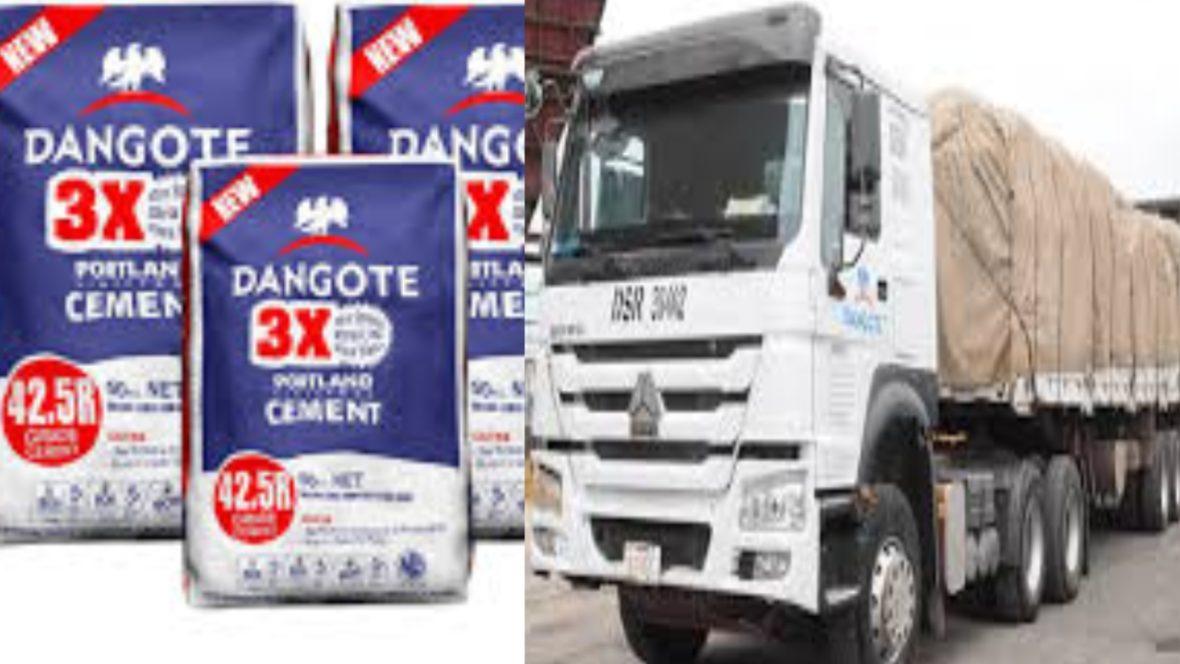Becoming a Dangote Cement Distributor: A Guide with Business Plan and Customer Targeting Strategy
To become a distributor for Dangote Cement in Nigeria, you’ll need to meet specific financial, logistical, and regulatory requirements. Here’s a complete guide, including costs, documentation, profit potential, and a practical business plan for reaching targeted customers.
Overview of Dangote Cement Distribution in Nigeria
The cement market in Nigeria is growing, especially with Dangote Cement leading the industry. As a trusted and recognized brand, Dangote offers a substantial business opportunity. However, success requires careful planning, sufficient capital, and effective customer targeting.
1. Understanding the Nigerian Cement Market
- High Demand: The booming construction sector, driven by infrastructure projects and real estate, keeps cement demand high, making distribution a promising venture.
- Dangote’s Reputation: Dangote Cement is a trusted name with widespread brand loyalty, competitive pricing, and high-quality products.
2. Why Become a Dangote Cement Distributor?
- Quality and Recognition: Dangote Cement’s reputation among contractors and builders translates into strong sales potential for distributors.
- Profitability: With a stable market position, Dangote Cement offers distributors better margins and high sales volume.
3. Requirements to Become a Dangote Cement Distributor
To qualify as a distributor, you’ll need:
- Business Registration: Register as a limited liability company with the Corporate Affairs Commission (CAC), typically costing around ₦50,000 to ₦60,000.
- Bank Account: Open a business bank account and get a bank reference letter to establish financial credibility.
- Warehouse Space: A secure warehouse with a minimum capacity for 600 bags, though 4,500 bags (one truckload) is recommended for wholesale.
- Transportation Setup: Reliable transport is essential. Consider investing in vehicles or partnering with a logistics provider.
- Initial Capital: A starting investment of around ₦35 million to ₦37 million will cover inventory, warehouse rent, and logistics costs.
4. Steps to Apply for Dangote Cement Distributorship
Step 1: Application Submission
Contact Dangote Cement via the official website or reach out directly to their national sales office:
- Website: Dangote Cement Official Website
- Address: National Sales Director, Dangote Cement Plc, Union Marble House, 1 Alfred Rewane Road, Falomo, Ikoyi, Lagos.
- Email: customercare@dangote.com
Submit necessary documents, including:
- CAC certificate
- TIN
- Company bank reference letter
- Warehouse details
- Transportation setup
Step 2: Due Diligence and Assessment
Dangote Cement’s team will assess your financials, warehouse setup, and logistics capacity. They may conduct a site inspection of your warehouse.
Step 3: Approval and Agreement
Once approved, you’ll sign a distributorship agreement that outlines exclusivity clauses, minimum purchase requirements, and pricing.
5. Cost Breakdown for Setting Up as a Distributor
- Initial Cement Purchase: One truckload (4,500 bags) costs approximately ₦7,000 per bag, totaling ₦31.5 million.
- Warehouse Rent: Rent varies but typically ranges from ₦1 million to ₦2 million annually, depending on location.
- Transportation Costs: Includes fuel, maintenance, and vehicle expenses.
- Additional Expenses: Insurance, salaries, security, and administrative costs add up to around ₦500,000.
Total Initial Investment: Between ₦35 million and ₦37 million.
6. Business Plan for Dangote Cement Distribution
Executive Summary
The goal of this business is to become a leading distributor of Dangote Cement within Nigeria, targeting key construction and real estate markets. Our strengths will be our strategic location, a robust logistics setup, and strong customer relationships.
Market Analysis
- Target Market: The Nigerian construction sector, including residential, commercial, and government projects, drives cement demand.
- Customer Segments:
- Contractors and Builders: Small and large-scale builders needing steady cement supplies.
- Real Estate Developers: Reliable customers who purchase in bulk.
- Retail Stores: Hardware and building materials stores needing smaller but regular orders.
Marketing and Sales Strategy
- Customer Targeting:
- Build Relationships: Engage local construction companies, real estate developers, and government contractors.
- Networking: Join local trade associations and attend industry events to establish connections
- Direct Outreach: Meet with managers of construction firms and wholesale retailers to introduce your distributorship.
- Promotion Strategy:
- Social Media: Use Facebook, Instagram, and LinkedIn to reach a broader audience and showcase competitive pricing and offers.
- Community Sponsorships: Sponsor local projects and events to increase brand visibility and build community relationships.
- Local Advertising: Advertise in local newspapers, construction magazines, and industry platforms.
Operations Plan
- Inventory Management: Maintain a steady supply of 4,500 bags to meet demand.
- Logistics: Set up a reliable distribution system with efficient transport and warehouse security.
- Staffing: Hire warehouse staff, drivers, and a sales team to manage operations and customer relations.
Financial Projections
- Profit Margins: Expect ₦500 to ₦1,000 per bag depending on selling price, with monthly earnings from ₦500,000 to ₦1,000,000 (based on sales of 1,000 bags).
- Operating Costs: Annual rent, transport, salaries, and miscellaneous expenses are expected to remain stable after initial setup.
7. Targeting and Attracting Customers
1. Digital Marketing and Social Media Presence
- Website and Social Media: Create a simple website to showcase your business and communicate your services. Use social media to share pricing, promotions, and updates.
- Google My Business: Register your business on Google to improve local search visibility for potential customers.
2. Build Partnerships with Local Businesses
- Hardware Stores: Offer them deals to carry Dangote Cement as their primary cement option.
- Real Estate and Construction Companies: Establish relationships with firms needing regular, bulk cement orders.
- Local Government Projects: Where possible, become a registered supplier for public sector construction projects.
3. Customer Service Excellence
- Timely Delivery: Reliable, timely deliveries build trust and encourage repeat purchases.
- Flexible Payment Options: Offer flexible payment terms to trusted customers, especially smaller retailers, to build loyalty.
4. Direct Marketing and Field Visits
- Sales Team: Have a small sales team that visits potential customers regularly, providing information and promotional materials.
5. Community Engagement
- Support Local Projects: Sponsor or support small construction projects in the community, as these efforts often enhance word-of-mouth marketing.
- Workshops and Training: Host workshops for contractors and retailers to educate them on Dangote Cement’s quality, helping to increase brand loyalty.
8. Profit Margin and Earning Potential
- Selling Price: Retail prices typically range from ₦7,500 to ₦8,000 per bag.
- Profit Margins: A margin of ₦500 to ₦1,000 per bag, depending on your location and transport costs.
- Monthly Revenue: Selling 1,000 bags can yield ₦500,000 to ₦1,000,000 in profit, after expenses.
9. Benefits of Dangote Cement Distributorship
- Support Network: Dangote’s extensive distribution network, logistical support, and training.
- High Demand: The brand’s strong reputation guarantees steady demand.
- Training and Marketing Support: New distributors receive product training and support with marketing materials.
Final Thoughts
Becoming a Dangote Cement distributor is an attractive opportunity. Although it requires a significant initial investment, the right business plan, effective marketing, and a solid network can help you grow a profitable and sustainable business. For further information or to apply, visit the Dangote Cement website or contact their sales office directly.
Ever heard of Naijamarket
It’s online platform that connects buyers and sellers for free . CLICK HERE to register and upload pictures of what you do for a living




